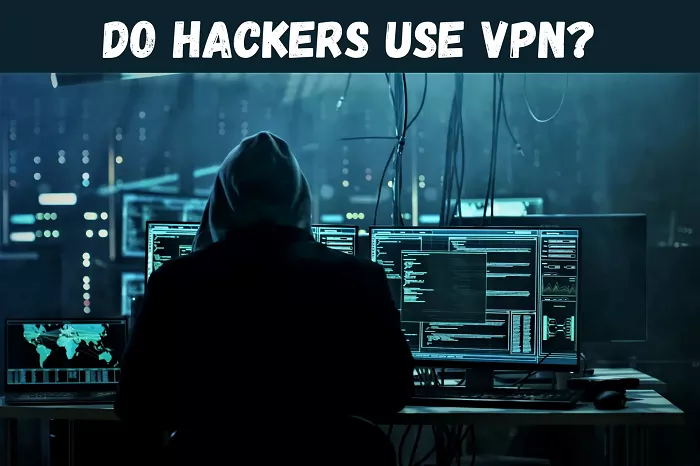Virtual Private Networks (VPNs) are essential tools for enhancing online privacy and security by encrypting internet traffic and masking IP addresses. While VPNs are widely used by individuals seeking to protect their personal information, they are also utilized by hackers to conceal their identities and activities. Understanding the VPNs favored by hackers can shed light on the features that make these services particularly appealing.
Why Do Hackers Use VPNs?
Hackers employ VPNs for several reasons:
- Anonymity: By masking their IP addresses, hackers can operate without revealing their true locations, making it challenging for authorities to trace their activities.
- Bypassing Restrictions: VPNs enable hackers to circumvent geo-restrictions and access content or systems that may be blocked in certain regions.
- Secure Communication: Encrypted connections provided by VPNs protect hackers from interception when communicating with accomplices or accessing compromised systems.
Features Hackers Look for in a VPN
The following features are particularly attractive to hackers:
- Strict No-Logs Policy: Ensures that the VPN provider does not store any user activity data, preventing any potential tracing of activities back to the user.
- Advanced Encryption Protocols: Utilization of robust encryption standards, such as AES-256, to secure data transmissions.
- Anonymous Payment Options: Acceptance of cryptocurrencies like Bitcoin allows for anonymous transactions, further protecting the user’s identity.
- Multi-Hop Connections: Routing traffic through multiple servers in different locations adds layers of obfuscation, enhancing anonymity.
Popular VPNs Among Hackers
Several VPN services are known to be favored by hackers due to their robust security features and commitment to user anonymity:
1. NordVPN
NordVPN is renowned for its advanced security features, including:
- Double VPN: Routes traffic through two separate servers, adding an extra layer of encryption.
- Onion Over VPN: Combines VPN encryption with the anonymity of the Tor network.
- Strict No-Logs Policy: Ensures no user activity is recorded.
These features make NordVPN a popular choice among hackers seeking enhanced anonymity.
2. ExpressVPN
ExpressVPN is favored for its high-speed servers and robust security protocols:
- TrustedServer Technology: Operates on RAM-only servers, ensuring data is wiped with every reboot.
- Network Lock (Kill Switch): Automatically blocks internet traffic if the VPN connection drops, preventing data leaks.
- No-Logs Policy: Guarantees that user activity is not recorded.
These attributes contribute to its popularity among individuals seeking secure and private connections.
3. CyberGhost VPN
CyberGhost VPN offers user-friendly interfaces alongside strong security measures:
- Automatic Kill Switch: Protects users by disconnecting them from the internet if the VPN connection fails.
- DNS and IP Leak Protection: Ensures that user data remains secure and private.
- No-Logs Policy: Maintains user anonymity by not recording browsing activities.
These features make it a viable option for those prioritizing privacy.
4. Private Internet Access (PIA) VPN
PIA VPN is known for its commitment to user privacy:
- No-Logs Policy: Has been proven in court to not store user data.
- Advanced Encryption: Offers customizable encryption settings to balance speed and security.
- Anonymous Payment Options: Accepts cryptocurrencies, allowing for anonymous subscriptions.
These characteristics make PIA appealing to users seeking robust privacy protections.
5. PureVPN
PureVPN provides a range of features that enhance user anonymity:
- High-Speed Servers: Ensures fast and reliable connections.
- No-Logs Policy: Certifies that no browsing information is stored.
- Split Tunneling: Allows users to route some of their device or app traffic through a VPN while letting other traffic directly access the internet.
These features contribute to its use among individuals seeking secure connections.
Risks Associated with VPN Use by Hackers
While VPNs offer enhanced privacy and security, their misuse by hackers presents several risks:
- Illegal Activities: Hackers may use VPNs to conduct cyberattacks, distribute malware, or engage in other illegal activities, complicating law enforcement efforts.
- Infiltration of Legitimate Networks: There have been instances where malicious actors, posing as legitimate remote workers, have infiltrated organizations to conduct espionage or sabotage. For example, North Korean spies have reportedly used stolen identities to secure employment in Western IT departments, using VPNs to mask their origins.
- Compromised VPN Services: Some VPN services may be exploited by cybercriminals. For instance, certain VPNs have been found to sell users’ home internet connections to proxy networks, potentially exposing them to malicious activities.
Conclusion
Hackers prefer VPNs that offer strong encryption, a no-logs policy, and advanced security features. Popular choices include NordVPN, ExpressVPN, Surfshark, ProtonVPN, and Mullvad VPN. While these VPNs are favored by hackers, they are also excellent options for regular users who value privacy and security.

